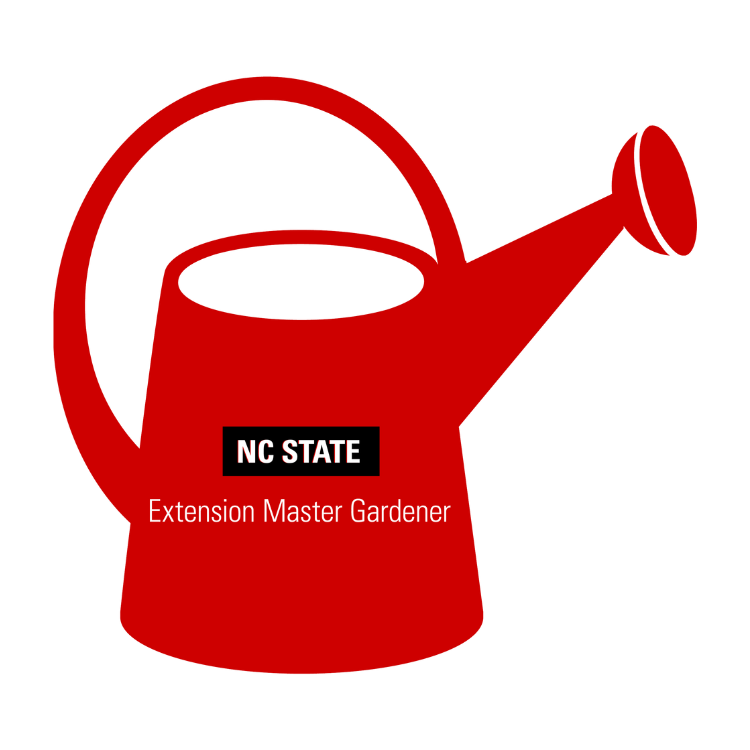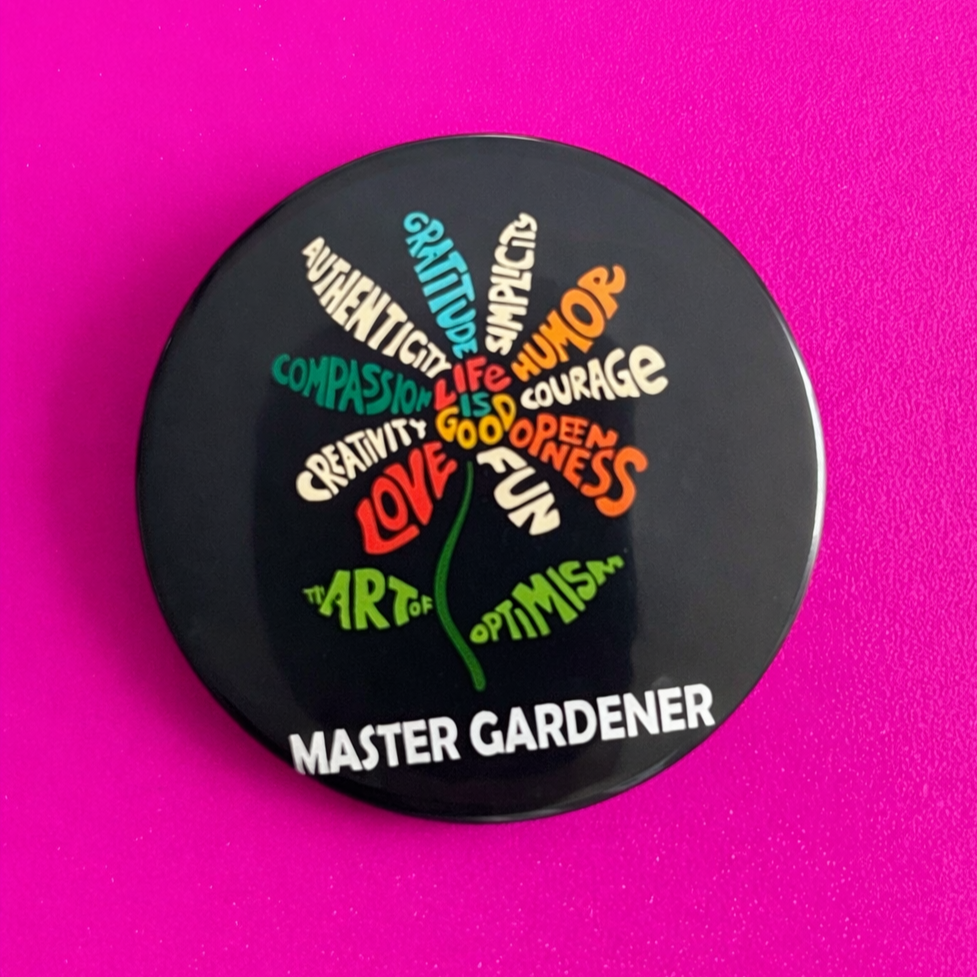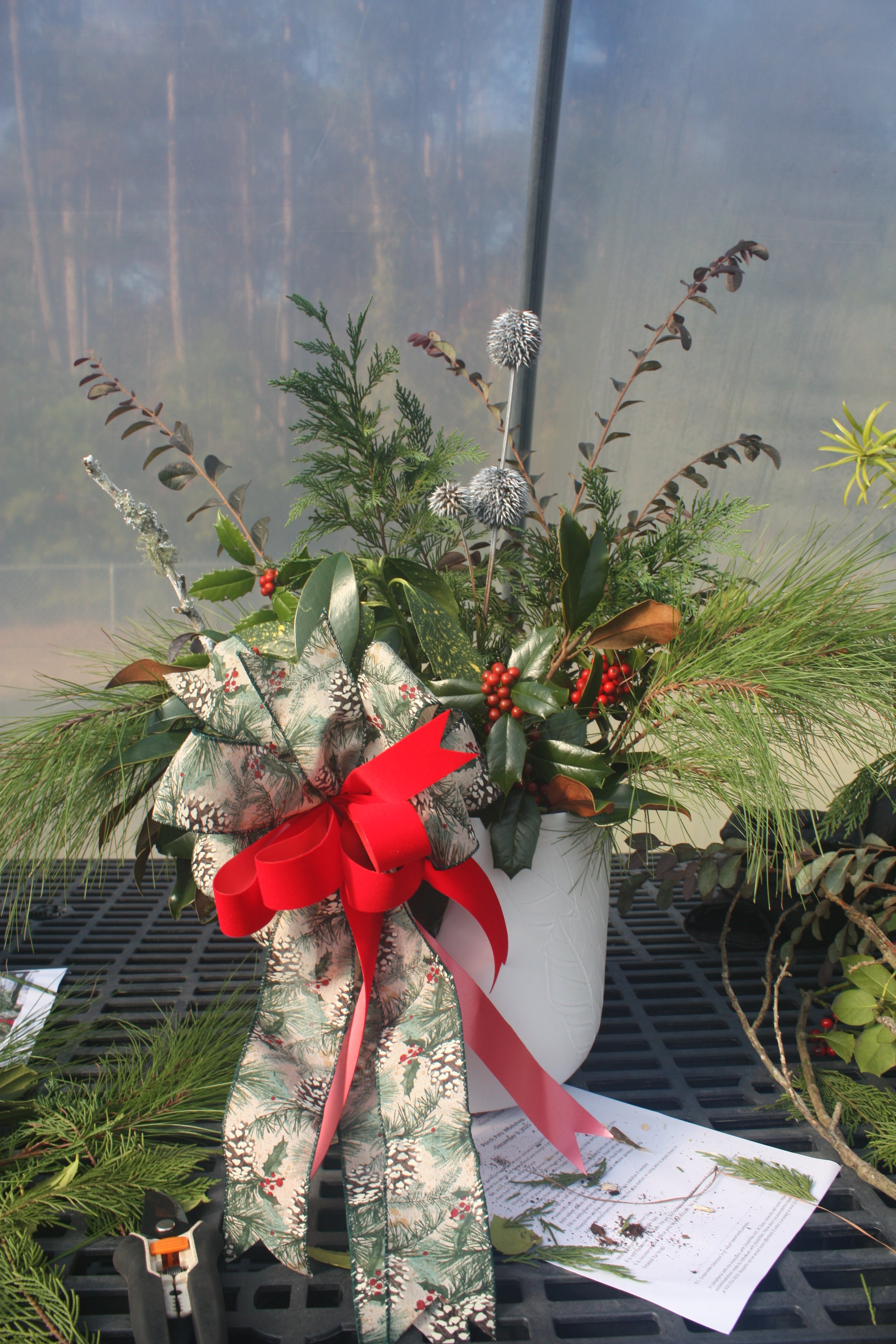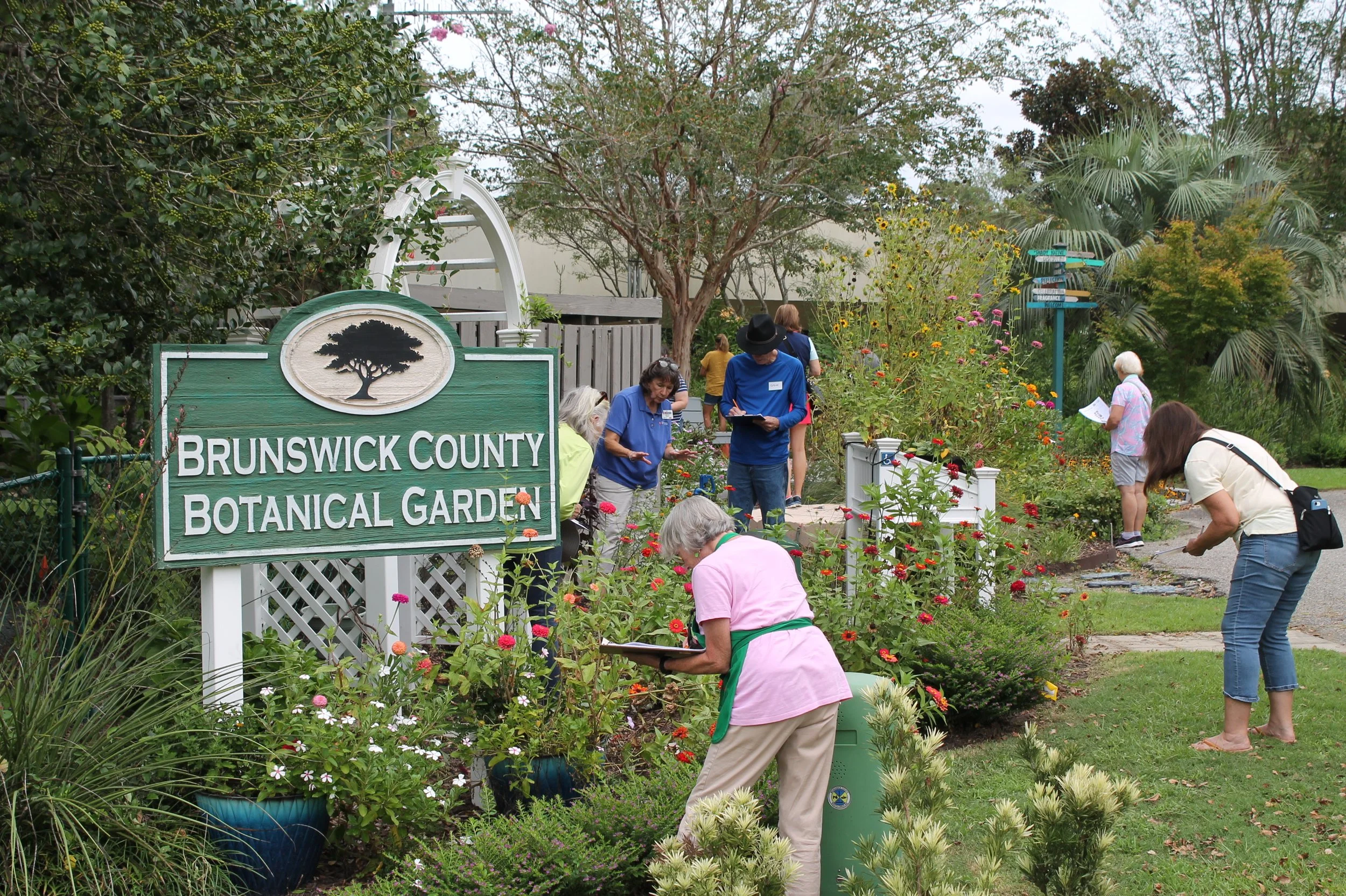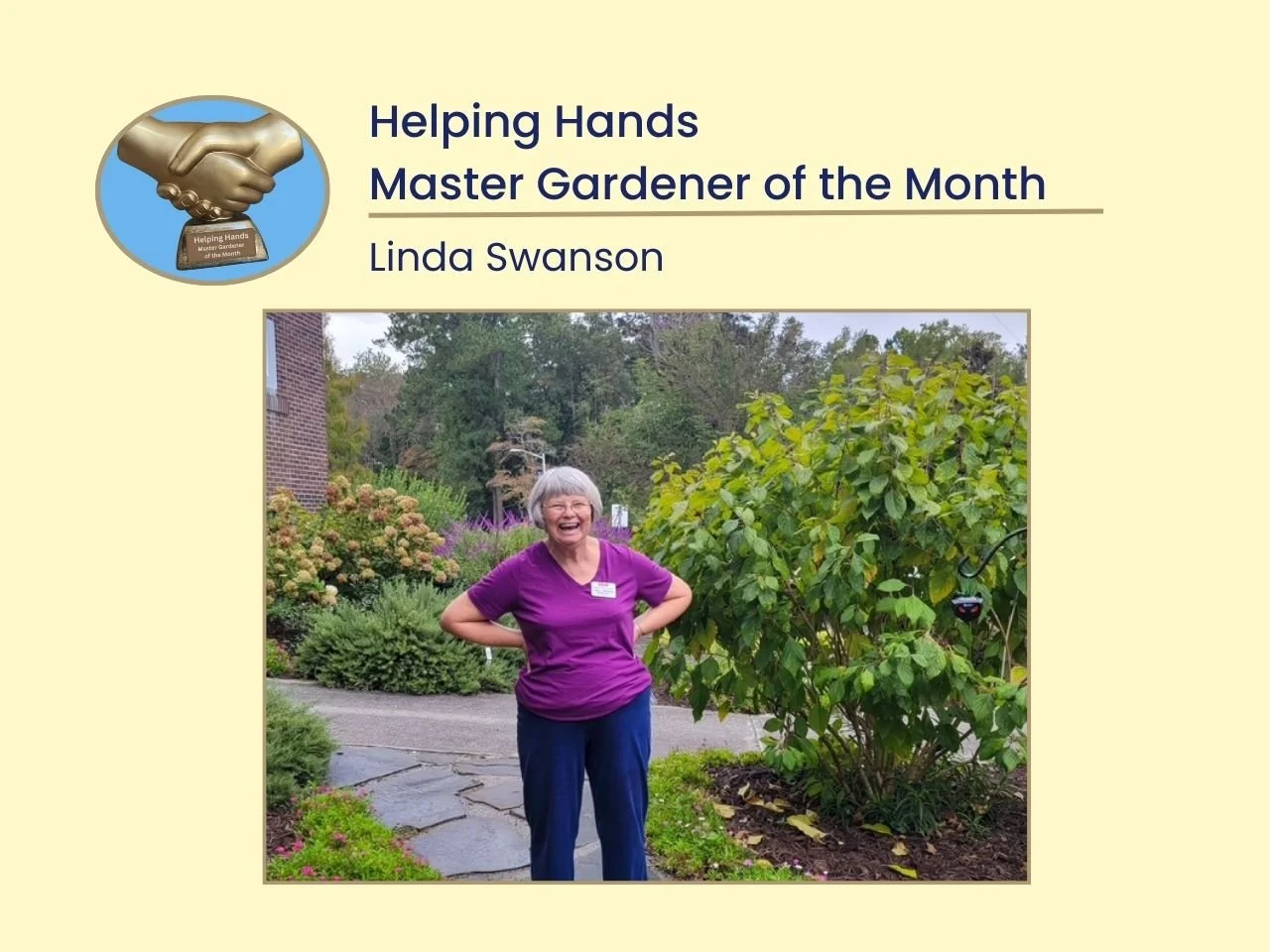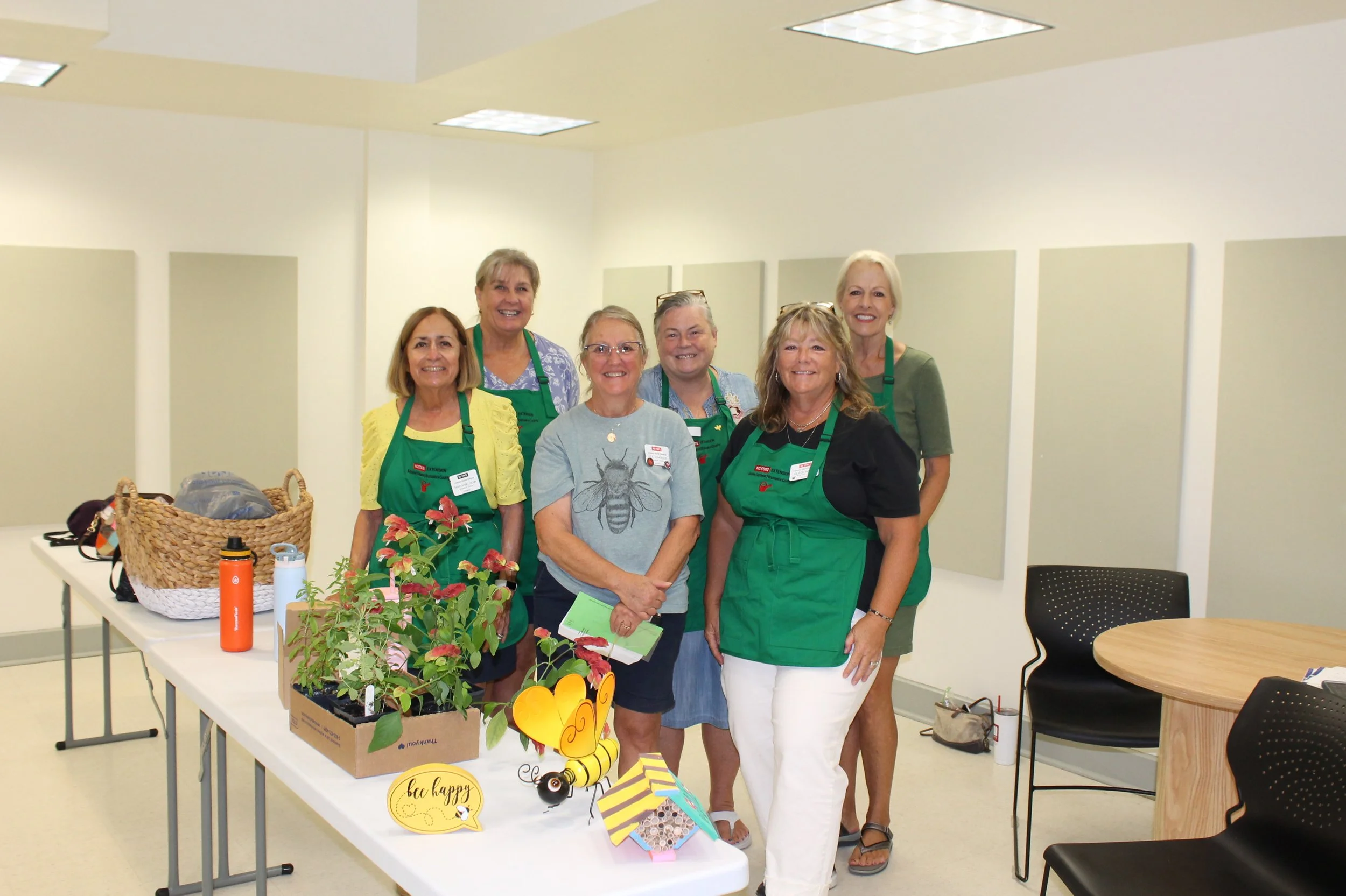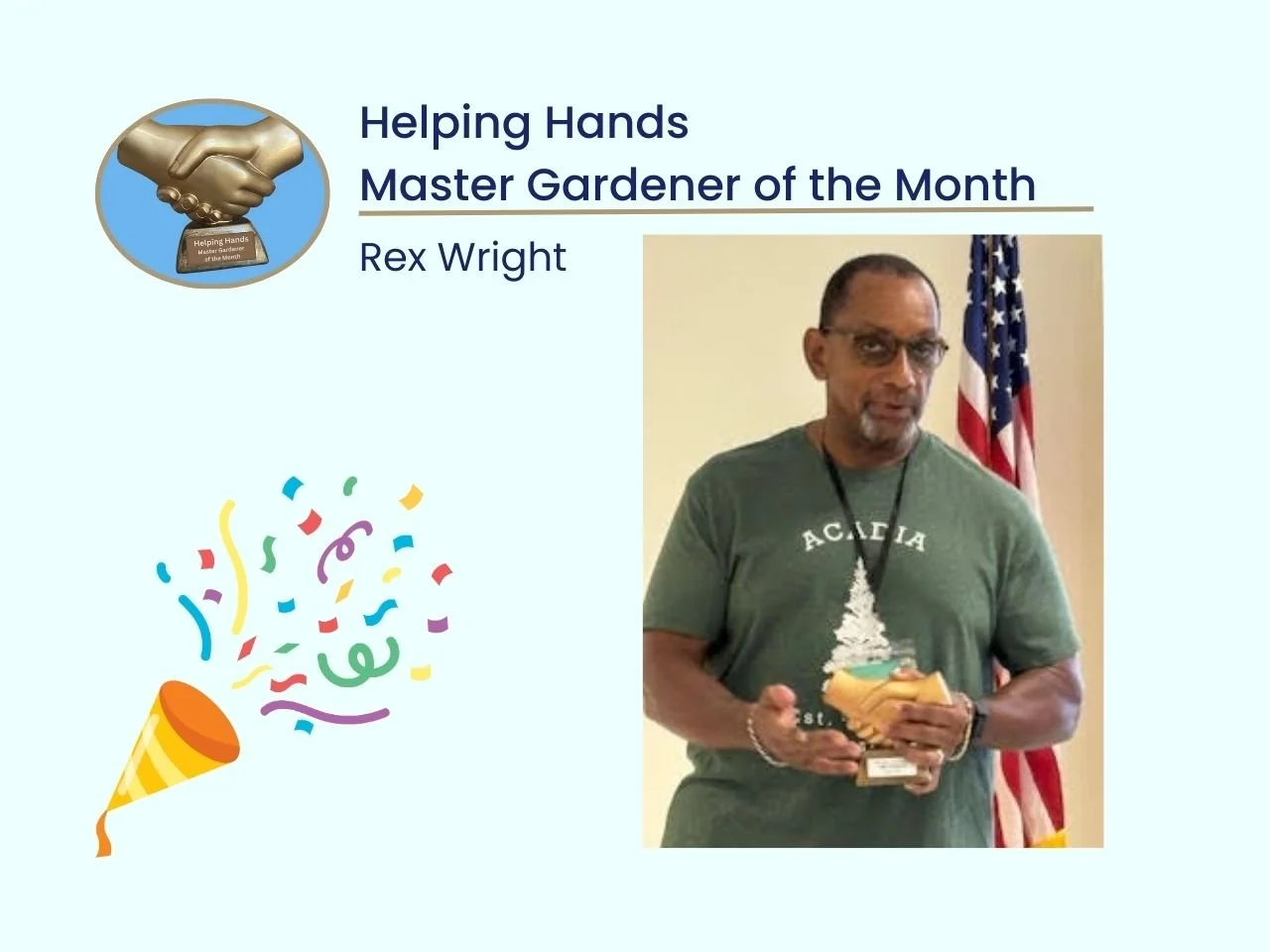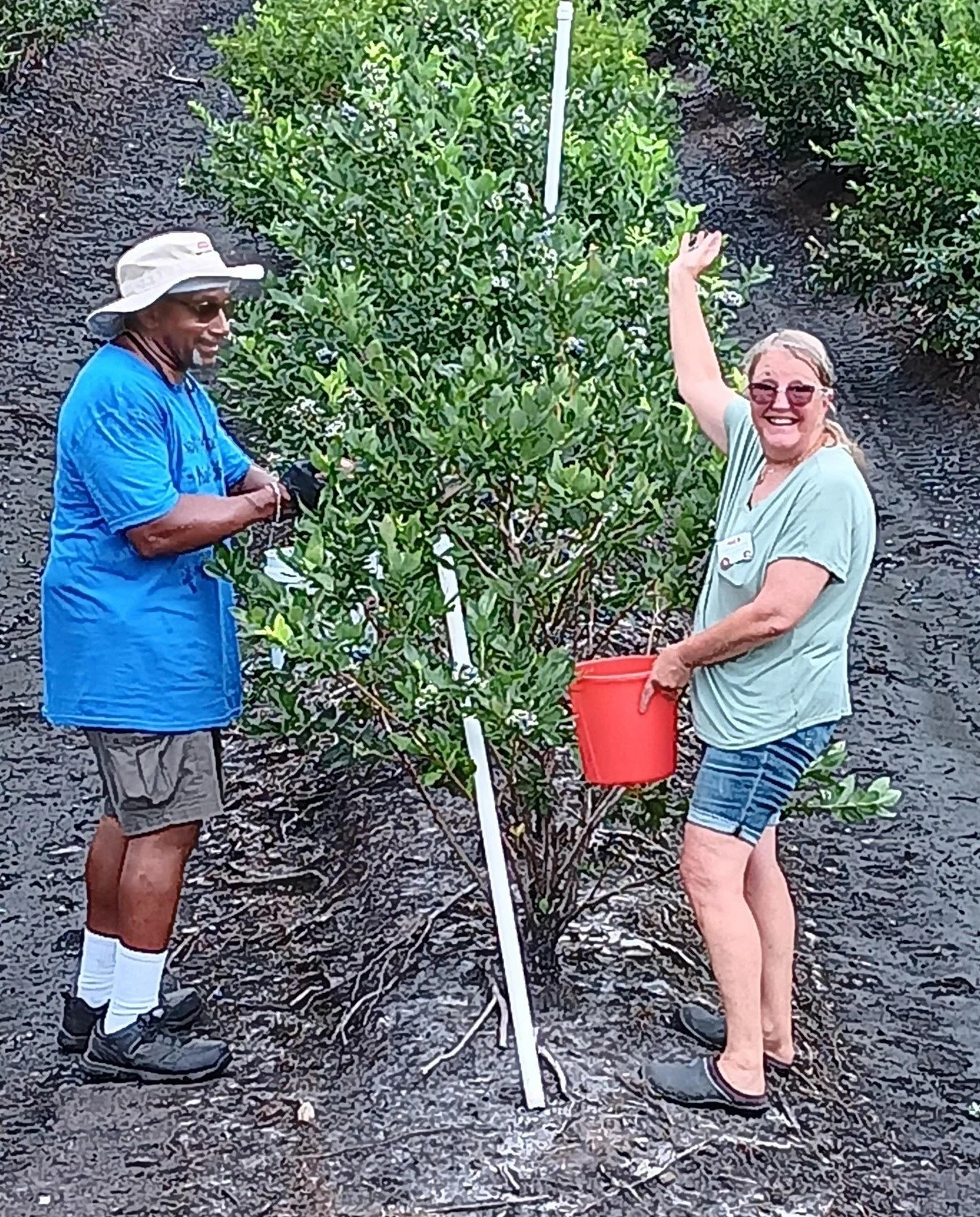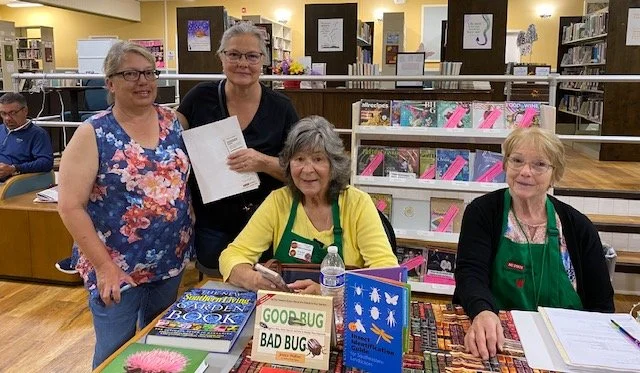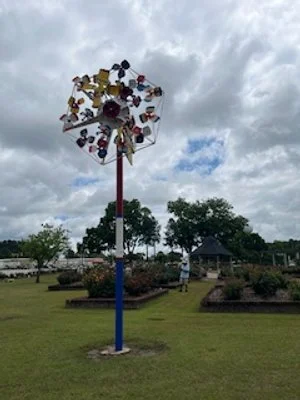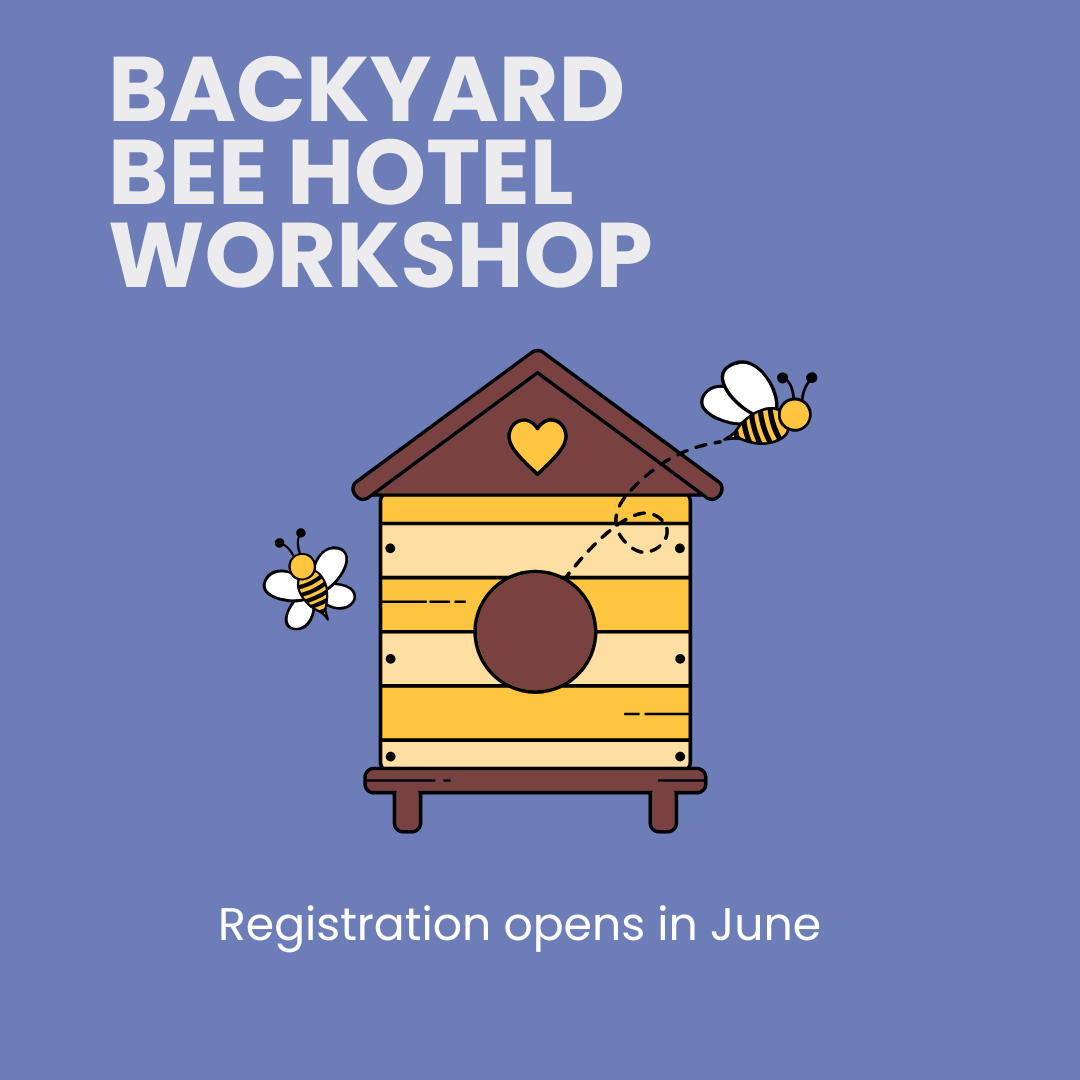Come Grow With Us!
Brunswick County Master Gardener Volunteers stand ready to stir your passions and help build your skills for gardening in coastal North Carolina.
Discover What’s Blooming in the Plant Showcase
Discover the stories behind the plants that thrive in Brunswick County’s coastal gardens. Each month, Master Gardener volunteer Kathryn Copley highlights a featured plant—sharing its history, growing habits, and ecological value. You’ll learn about native plants, time-honored ornamentals, and pollinator-friendly favorites that flourish in our sandy soils and salty air. Whether you’re looking to add color, attract butterflies, or garden more sustainably, this monthly Plant Showcase offers practical insight and local inspiration. Browse the collection and find your next garden favorite!
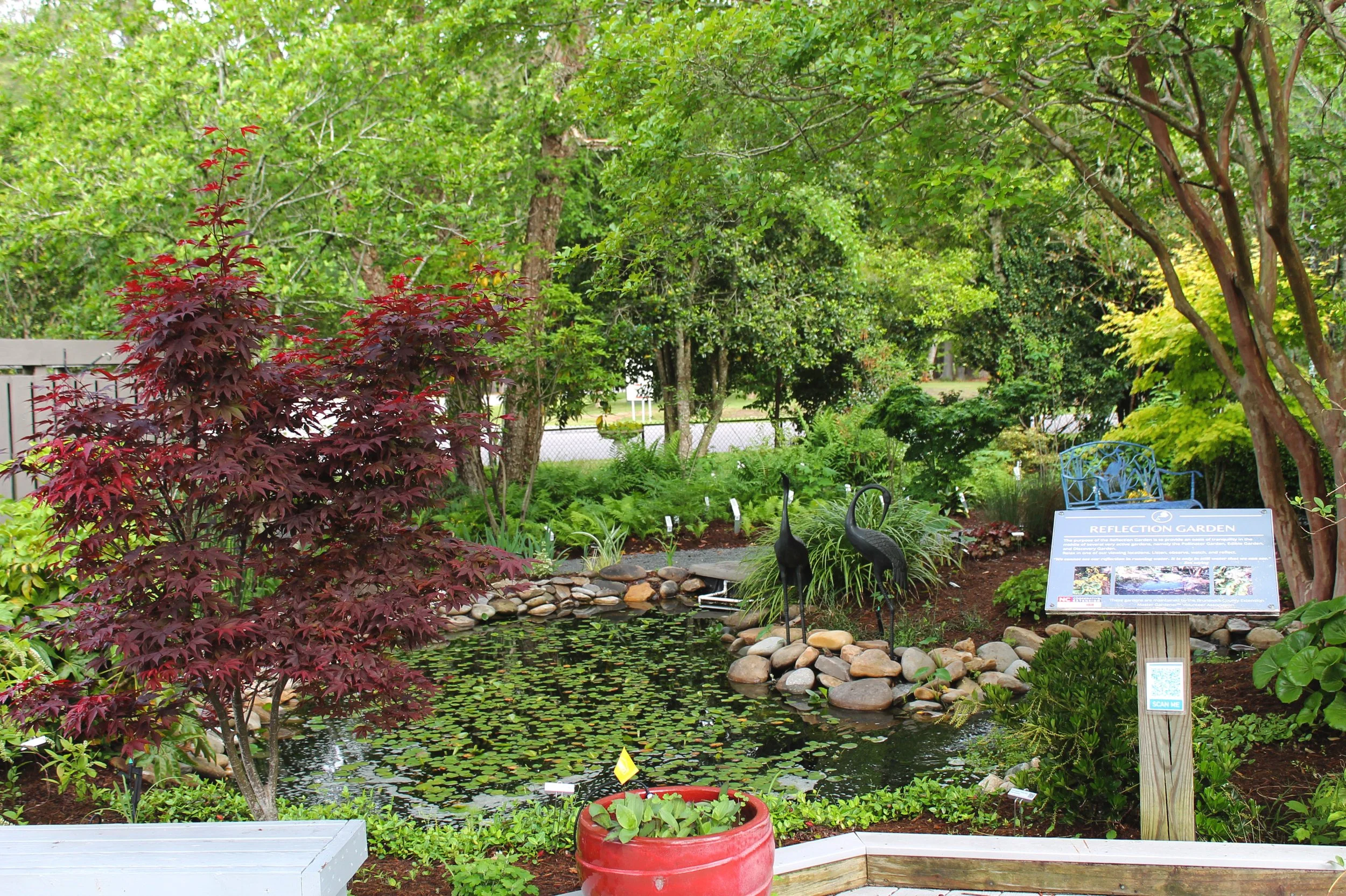
Our Botanical Gardens are here to inspire you
Open daily from 9 a.m.–5 p.m. in Bolivia, NC, the Brunswick County Botanical Garden is maintained by Master Gardener℠ Volunteers and Extension staff. Eighteen themed gardens—from pollinator and rain gardens to curb-appeal landscapes—showcase plants that thrive in our Zone 8 Coastal Plain. Stroll, learn, and be inspired by this living classroom where beauty and sustainability grow side by side

Ask a Master Gardener
Get reliable, research-based gardening advice for coastal Carolina directly from our Master Gardener℠ Volunteers. Visit a Plant Clinic, call our Hotline (910-253-2610), or email us with your question.. We can help identify weeds and insects, recommend plants for your growing conditions, and troubleshoot soil or seasonal issues. If your question could help others, we may even feature it in a future post. We’re here to help you grow with confidence!
Life in the Garden: EMGs in Action
Our Extension Master Gardener℠ Volunteers are busy year-round—leading workshops, tending gardens, partnering with the community, and sharing their love of plants. This gallery highlights some of the many ways EMGs make a difference, from hands-on volunteer days and Habitat for Humanity projects to Field Trip Fridays, special events, and Master Gardener of the Month features.
Use the < > arrows in the top right corner to scroll through the images, and click any picture to learn more about the story behind it. See how our volunteers bring knowledge, beauty, and joy to the garden and beyond.
If you’re ready to grow your skills and give back, consider joining the next Master Gardener Training Class. Learn more here.
Become part of a network of Brunswick County residents who are making a difference—one garden at a time!
Cecily and Jean share their heartfelt thanks to all the Master Gardener℠ volunteers who supported plant sales and public workshops throughout 2025. It was a milestone year for the program, marked by a refreshed approach to plant sales and the successful launch of new community workshops. These achievements would not have been possible without the dedication of our volunteers.
The Holiday Porch Pot Workshop brought the beauty of the season to life. Creativity, fresh greenery, and community came together in festive style. After selling out in just 23 minutes, participants gathered in the hoop house to transform their containers into stunning winter displays using harvested magnolia, pine, holly, and other natural accents. With guidance from Extension Master Gardener℠ Volunteers, each porch pot became a unique expression of seasonal charm and hands-on learning.
Gayle’s friendly smile and steadfast service have touched nearly every corner of our Association. From Field Trip Fridays to the Reflection Garden, she brings heart, dedication, and a can-do spirit to everything she does.
Our latest Field Trip Friday led us to Moore Farms Botanical Gardens, where cutting-edge horticulture blends with Southern gardening tradition — all dressed up for Halloween 🎃. From the Fire Tower Gardens to the Mediterranean Garden, each space offered new inspiration and insight into what truly defines a Southern Garden.
Our first-ever “Grow Your Own Salad Bowl Workshop” was a resounding success! Participants learned how to combine lettuce varieties, specialty greens, herbs, and edible flowers to create beautiful, productive containers that thrive in fall and early spring. The sessions blended education and creativity, beginning with a short demonstration on container gardening and followed by hands-on planting. Master Gardener℠ Volunteers were on hand to answer questions, offer guidance, and share practical tips for keeping greens vibrant and healthy throughout the season.
After the October General Association Meeting, Mike and Michele Tullai led an informative and hands-on demonstration on how to make hypertufa containers—lightweight, durable, and perfect for garden use.
The finished pots are strong yet porous, making them ideal for plantings and drainage—and at about $4 each, they’re an affordable way to create custom planters. You can see examples of hypertufa containers in the Botanical Garden.
Dave is one of those invaluable, quiet Master Gardeners who works diligently behind the scenes, contributing greatly to our association's success. His computer skills have been instrumental since he joined the program. As an intern, he used his expertise to map our intern project at the Rourk Library and later mapped the Botanical Garden as Co-Lead. His mapping skills were also vital for detailing the landscapes of Habitat for Humanity houses.
Our Fall 2025 plant sale has officially ended and to all our amazing customers, thank you for making our plant sale a resounding success. We raised over $8,100 which will go towards educational programming, Habitat for Humanity projects, school gardens, and the Brunswick County Botanical Education Garden, which is open for self-guided tours.
As part of Field Trip Fridays, 12 EMGs explored the extraordinary Juniper Level Botanic Garden in Raleigh. This 10-acre garden is home to more than 27,000 plants—native perennials, rare exotics, and one-of-a-kind specimens from around the world. Designed with the philosophy of “drifts of one,” it offers beauty and discovery in every corner. Juniper Level has become one of the largest ex-situ plant collections in the world, dedicated to preserving biodiversity and sharing it with gardeners everywhere.
Jean Klein has brought a renewed energy to this fall’s plant sale. After learning the ropes from Vicki in the spring, she took charge of the fall plant sale and never looked back. Jean has brought a new energy to organizing and marketing the sale. In doing so, she’s set a new precedent for the level of communication with the myriads of people involved. Jean ensures everyone is heard and feels appreciated, she is a calm and gentle soul; always open to new ideas and adapts well to new challenges. Even though the sale is not 100% complete, it is for her tireless effort the past couple of months that she has earned the volunteer of the month for September.
The Brunswick County Botanical Garden buzzed with energy as more than 2,900 pollinators were counted during our Pollinator PLUS Workshop, held August 22–23. From carpenter bees to butterflies, attendees gained hands-on training, participated in the census, and even took home pollinator-friendly plants to support their own gardens.
For more than 15 years, Linda Swanson has been a dedicated and creative force in the Brunswick County Botanical Garden, and we’re proud to recognize her as our July 2025 Master Gardener of the Month. Energetic, thoughtful, and full of humor, Linda exemplifies the quiet strength that sustains our Master Gardener community.
Families gathered in July for a hands-on Bee Hotel Workshop that blended learning, creativity, and fun. Children worked alongside parents and grandparents to learn about native bees and why they matter, then painted and assembled their own bee hotels to take home.
With guidance from Master Gardener℠ Volunteers and Extension staff, participants explored simple ways to support pollinators—both in the classroom and out in the garden—making this workshop a meaningful and memorable summer experience.
Since joining the Master Gardener Program in 2023, Rex Wright has brought knowledge, patience, and quiet strength to the Curbside Garden and beyond. Known for reviving struggling plants in his “Private Plant Hospital” and generously sharing his expertise, Rex embodies the dedication and compassion that strengthen our Master Gardener community.
As part of our Field Trip Fridays program, 20 Extension Master Gardeners visited the world’s top public blueberry breeding station in Castle Hayne to learn about cultivar research and pest resistance—before ending the day with some blueberry picking of their own.
Extension Master Gardener Volunteers host Plant Clinics at the Southwest Branch Library on the first and third Thursdays from April through August. Have a gardening question? Need help identifying a plant, diagnosing a pest problem, or learning how to garden more sustainably? We are here to help!
Kelly has brought bright energy and clear communication to her roles as Webmaster and Publicity Liaison, upgrading our website, streamlining outreach, and leading us into exciting new formats with her trademark positivity.
EMGs and Extension staff pose outside with the new homeowner after installing custom-designed landscaping EMGs design and install gardens that feature drought-tolerant, pollinator-friendly plants and require little maintenance. Working alongside Habitat volunteers, we make sure each yard reflects the homeowner’s needs while protecting the environment.
Our Field Trip Fridays crew explored Wilson’s Botanical and Rose Gardens plus the whimsical Whirligig Park, gaining inspiration for our gardens—and maybe even a custom whirligig of our own!
Michele and Mike Tullai bring unmatched creativity, dedication, and teamwork to our gardens and our community. From the Wine Bottle Wall to the Hoop House and countless behind-the-scenes projects, Team Tullai continues to inspire with their leadership, talent, and generous spirit.
As part of our Field Trip Fridays program, EMGs enjoyed a fascinating visit to the Stanley Rehder Carnivorous Plant Garden in Wilmington. This unique park, dedicated to the conservation of native carnivorous plants, offers one of the few protected public spaces where these rare species can be seen in their natural habitat.
Ron brings a rare blend of calm expertise and genuine curiosity to our Master Gardener community. Whether guiding callers on the Hotline, assisting walk-ins, or researching plant problems, he shares his knowledge with patience, clarity, and a true passion for learning.
Joanne has transformed one of the Botanical Garden’s biggest challenges into a remarkable achievement. Her work redesigning the plant ID markers, building an accurate database, and organizing volunteers has brought clarity, beauty, and long-lasting value to all 18 Gardens.
